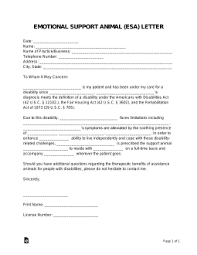Car repossession can be a distressing and overwhelming experience for any vehicle owner. It occurs when you fail to make timely payments on your car loan or lease, leading the lender or creditor to take back the vehicle. In this article, we will delve into the details of car repossession, the reasons behind it, and the laws that regulate such situations. Additionally, we will provide valuable advice on how to protect yourself from car repossession and what steps to take if your vehicle is at risk.
Understanding the Reasons for Car Repossessions
The primary reason for car repossession is the failure to make regular payments on your car loan or lease. When you sign an auto loan agreement, you are promising to repay the borrowed amount in monthly installments over a specific period. If you miss payments or consistently make late payments, the lender may consider you in default of the loan terms, leading to repossession Nathan DeLadurantey.
Apart from non-payment, other reasons for car repossession include:
Failure to Maintain Insurance: Many loan agreements require borrowers to maintain auto insurance coverage. If you fail to do so, the lender may repossess the vehicle to protect their financial interest.
Violation of Lease Terms: In the case of a car lease, specific terms and conditions must be followed. If you violate any of these lease terms, such as mileage limits or excessive wear and tear, the lessor may repossess the vehicle.
Other Defaults: Defaulting on other obligations, such as property taxes or child support, could also lead to car repossession, depending on state laws.
What Happens During Car Repossession
When a lender repossesses your car, they will typically hire a repossession company to locate and take possession of the vehicle. In some cases, repossession agents may use a tow truck to remove the car from your property. Once repossessed, the lender will likely sell the vehicle at an auction to recover the outstanding loan balance and any repossession costs.
Know Your Rights and Options
It is essential to understand your consumer rights if you find yourself at risk of car repossession. Under the law, lenders must follow specific procedures when repossessing a vehicle. For example, they cannot breach the peace during repossession, and they must provide notice before selling the car at auction.
If you believe that the repossession was not conducted legally or that there were errors in the process, you may have grounds to challenge the repossession. Consulting with a consumer rights attorney, like Nathan DeLadurantey, who specializes in this area can help you understand your rights and explore potential legal options.
How to Avoid Car Repossession
To prevent car repossession, it is crucial to stay on top of your car loan payments. If you are facing financial difficulties, contact your lender as soon as possible to discuss possible options, such as loan modifications or temporary payment arrangements. Keeping up with insurance, driver’s license, and vehicle registration is also essential to maintain compliance with loan or lease agreements.
Conclusion
Car repossession can have significant consequences on your financial well-being and credit score. Understanding the reasons for repossession, knowing your rights, and staying proactive in managing your car loan can help you avoid this distressing situation. If you are at risk of car repossession or have already experienced it, seeking legal advice from a consumer rights attorney is a prudent step to protect your interests and explore potential solutions click here Nathan DeLadurantey.


